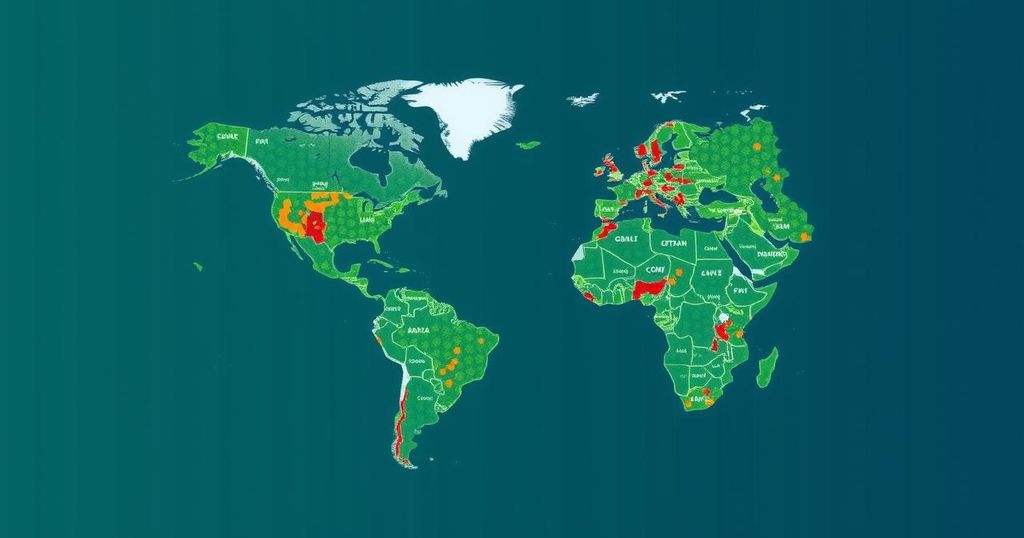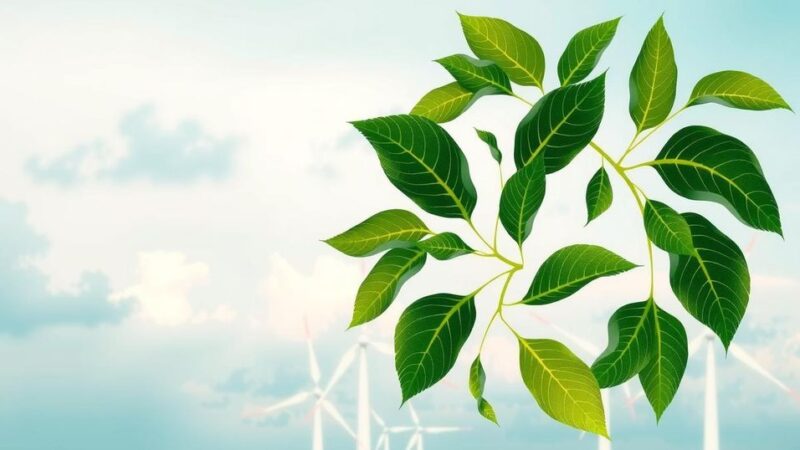The United Nations warns that national pledges to reduce greenhouse gas emissions are insufficient to meet targets necessary for avoiding significant global warming. Current plans only promise a 2.6% reduction by 2030, far below the 43% required. COP29 talks will focus on enhancing these pledges and financial support, amid alarming rises in atmospheric greenhouse gases.
In a recent report, the United Nations has indicated that current national pledges to reduce greenhouse gas emissions remain critically inadequate for averting significant global warming. As nations gear up for upcoming climate negotiations in November, the UN highlights that these pledges, known as nationally determined contributions (NDCs), will only lead to a 2.6% reduction in global emissions between 2019 and 2030. This figure, while an improvement from 2% the previous year, falls short of the 43% reduction deemed necessary to meet the Paris Agreement target of limiting global temperature rise to 1.5 degrees Celsius. Simon Stiell, Secretary General of the UN Framework Convention on Climate Change (UNFCCC), noted that the prevailing national climate plans are “miles short” of what is required to mitigate the effects of climate change and its impact on economies and livelihoods globally. He emphasized the need for new and more robust NDCs to be established by February of next year, characterizing this moment as potentially transformative in addressing climate challenges. The success of the forthcoming COP29 climate talks in Baku is expected to play a crucial role in encouraging nations to adopt more ambitious climate strategies. Nearly 200 countries will negotiate key elements of a global emissions trading scheme and the substantial financial assistance required to support developing nations in achieving their climate objectives. Further complicating the NDC process, stakeholders like Pablo Vieira from the NDC Partnership suggested that nations may utilize the negotiation for funding as leverage for greater environmental commitments. Compounding these challenges, the World Meteorological Organization (WMO) released a report indicating that atmospheric greenhouse gas levels have surged faster than ever recorded in human history, with carbon dioxide concentrations reaching a record high. The WMO also pointed to alarming trends, such as rising temperatures exacerbating greenhouse gas levels due to phenomena like unprecedented wildfire seasons. The report serves as a clarion call for urgent action, as every minuscule increase in greenhouse gas emissions drastically influences both ecological and human welfare.
The report by the United Nations reflects ongoing concerns regarding global climate change and the effectiveness of international agreements such as the Paris Agreement. The Paris Agreement, adopted in 2015, set forth ambitious targets for limiting global temperature rise in hopes of avoiding catastrophic climate impacts. However, nations have struggled to meet these targets, and the deadlines for submitting updated and more aggressive emission reduction plans are approaching. The significance of these pledges and their intended outcomes increases as the world faces diminishing time to execute substantial climate change mitigation.
In summary, the United Nations emphasizes that current national commitments to reduce greenhouse gas emissions are inadequate to meet the necessary targets established by the Paris Agreement. As nations prepare for critical climate negotiations, the call for more ambitious and actionable plans is urgent. The forthcoming discussions in Baku are pivotal, given the pressing need for financial support for developing nations and effective strategies to influence nations to commit to substantial climate actions moving forward.
Original Source: kfgo.com






